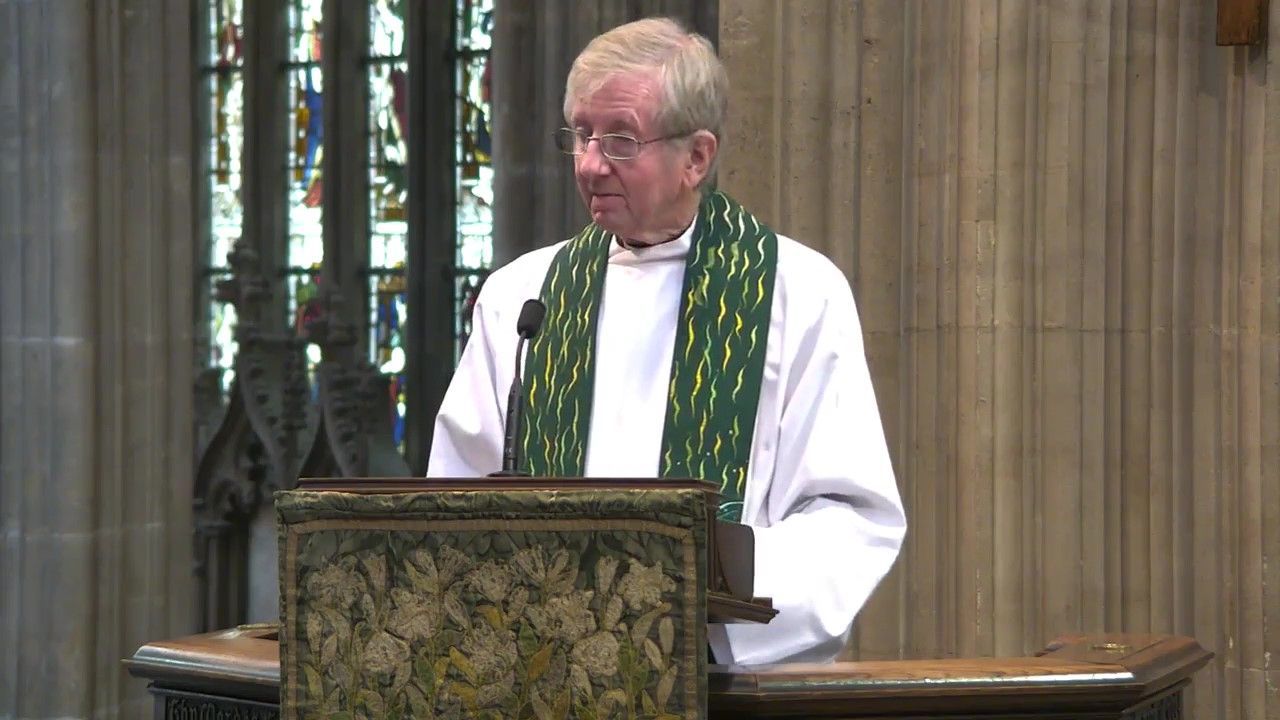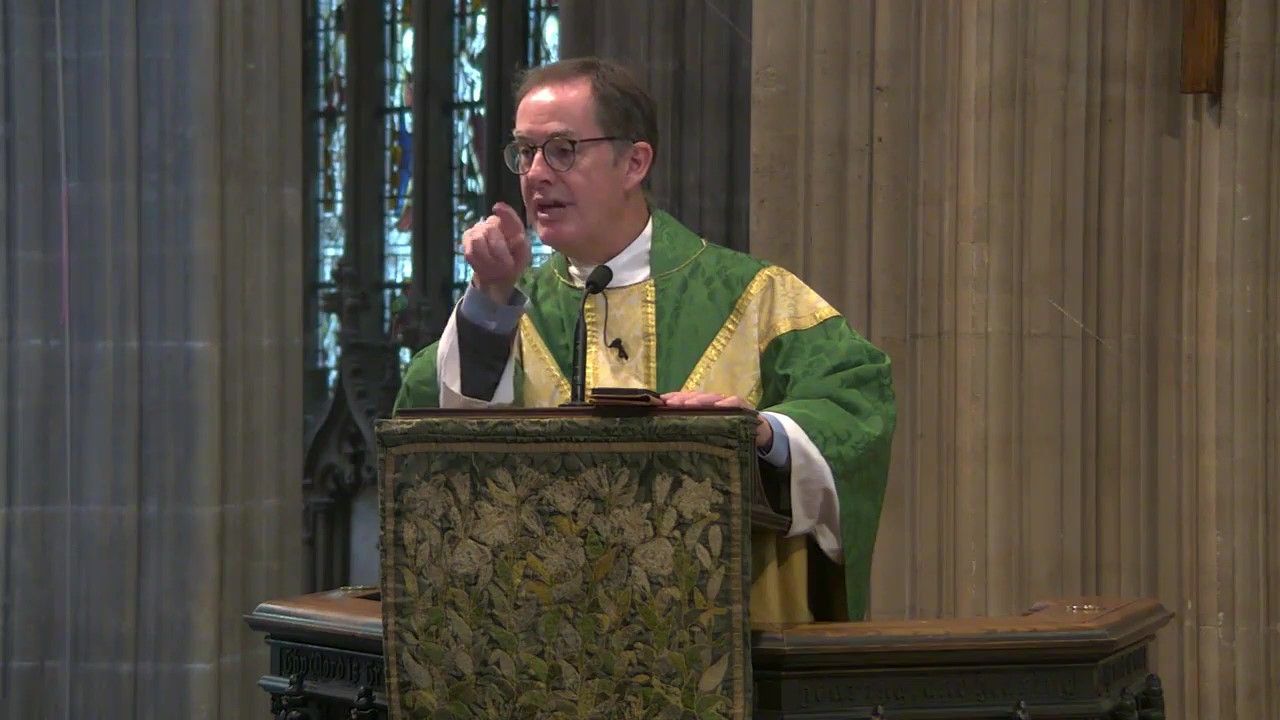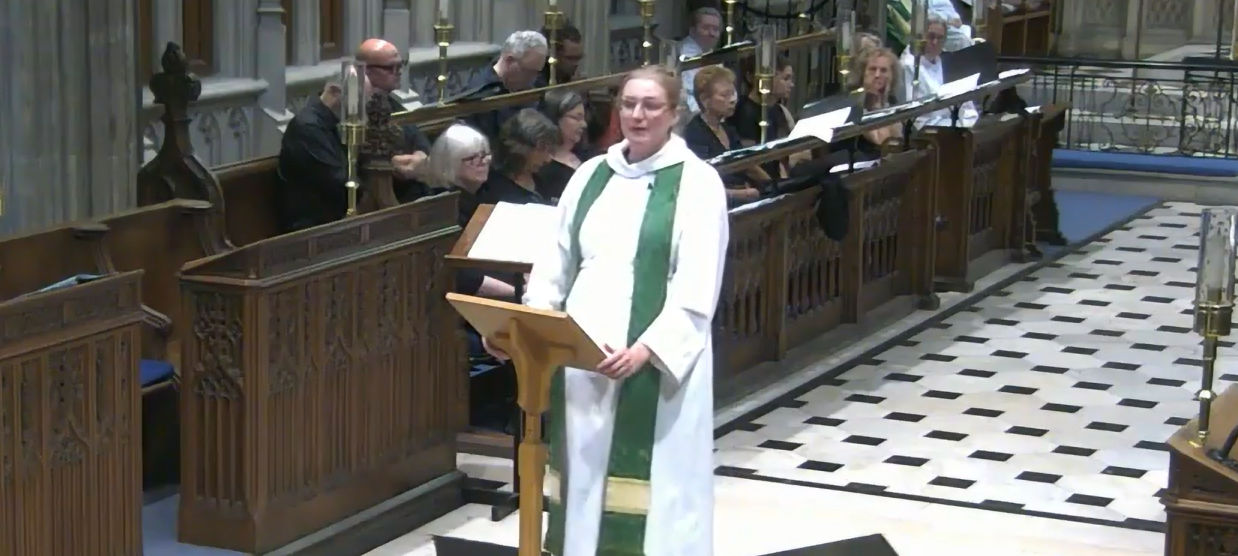"Abide in me as I abide in you"
These words of Jesus, from John's gospel, remind us to what we are called: we are called to abide.
This isn't necessarily a word that sits comfortably with everyone. Those who are activists or campaigners for change, who advocate or champion particular causes, who strive and hustle, nudge and prod people and society into a different shape ... we're not necessarily very good at abiding.
That doesn't mean we don't recognise its importance, indeed its centrality to our faith. It just means that it doesn't come as naturally to us, as the call to sing and proclaim and make real 'Magnificat': scattering the proud, pulling down the mighty, exalting the humble and filling the hungry.
Abiding, though, is more than being with.
When we sing 'Abide with me' we are drawing ourselves into, and calling on God to come towards, a deeper, more substantive, relationship than simply being alongside.
When, on the road to Emmaus, the two disciples invited the unknown traveller to 'abide with us for night is near', they are (maybe unbeknownst to them) grappling for words to describe something more than bed and breakfast.
And when Christ whispers into our hearts, "Abide in me as I abide in you" we are called back toward that relationship of unconditional love and mutuality, where each abides in the other, where each can only be and become who they truly are by that sense of deepest abiding.
Is there yet, though, another aspect of this seemingly simple yet most dramatic of phrases?
Checking a dictionary, you'll notice that "to abide" is defined not just as to continue, to await in expectation, to dwell ... all of which points to that deeper, more substantive, relationship. The notion of abiding is also to be found in remaining faithful to promises made and complying with decisions agreed.
This, then, reminds us of our promise to follow Christ, to be faithful to the promises made (for instance at our baptism) and to do those things which are part of Christian witness: to love God and to love our neighbour as ourselves.
"Abide in me as I abide in you" is, then, more than a call to a deep, personal and spiritual relationship with God in Christ: it is a reminder that Christ abides in his promises and in his decisions, and our activism, our advocacy and our nudging is witness to our abiding in our promises and in those decisions.
It's not an either / or option: it is a both / and invitation to abide deeply in the unconditional love of God and to abide deeply in our promises by loving our neighbour.






